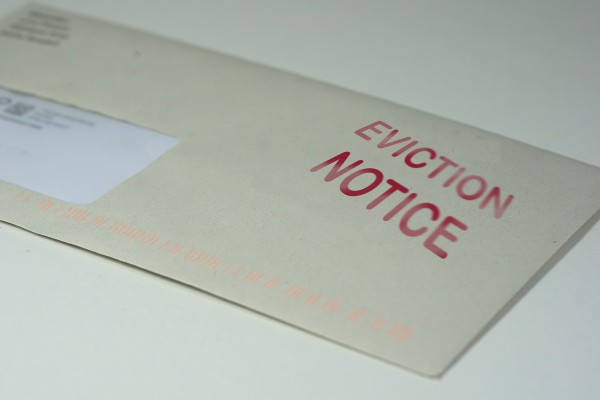What a Landlord Can Not Do in Georgia: Key Rules Explained
Here’s some good news for landlords in Georgia: they can legally substract operational expenses from their overall tax liability. However, every landlord should be mindful of their boundaries as per the Georgia Landlord-Tenant handbook.
What are the responsibilities every landlord in the Peach State should know about? We’ve summed up key points landlords in Georgia should know about before signing lease agreements. It’ll give you a preview of what you’re getting into as a landlord.
Contents
- 1 #1: Landlords in Georgia Can’t Evict Service Members for their Inability to Pay Rent
- 2 #2: Georgia Landlord-Tenant Laws Call for Legal Grounds for Eviction
- 3 #3: Rent Control Laws Mandate 60-Day Increase Notices
- 4 #4: Georgia Law Calls for Proper Protocol for Eviction Notices
- 5 #5: Honoring Terms of Rental Agreements is Important
- 6 #6: Discrimination isn’t Tolerated
- 7 #7: Maintaining a Habitable Living Environment is a Must
- 8 #8: Security Deposit Rules Must be Respected
- 9 #9: There Should be a Proper Notice Before Entering the Property
- 10 #10: Changing the Locks isn’t Allowed
- 11 Conclusion
- 12 FAQs
#1: Landlords in Georgia Can’t Evict Service Members for their Inability to Pay Rent

Did you know that active duty service members have certain protections regardless of where they’re based in the United States? The federal law, Servicemembers Civil Relief Act or SCRA, mandates that landlords cannot evict eligible individuals due to nonpayment of rent. The eviction lawsuit can only push through if the landlord gets a court order.
The service member doesn’t have to be physically living on the property for the protection to be enforced. This particular SCRA protection extends to their dependents, including their spouse and children.
It’s vital to clarify that this particular SCRA right is applicable to eviction due to nonpayment only. Other breaches of the contract are legal grounds for eviction. For example, if the tenant subleases the property or houses a pet, even though it’s prohibited, they can get evicted.
#2: Georgia Landlord-Tenant Laws Call for Legal Grounds for Eviction
Georgia Landlord-Tenant laws specify the legal reasons Georgia landlords can cite for eviction. Common legal grounds to start the eviction process in Georgia include violations of lease agreements, lease expiration, nonpayment of rent, and intentional damage to the rental unit.
Rental agreements detail what’s allowed and not allowed in a rental unit. For example, if the lease agreement says that pets are prohibited in the property, a tenant can be asked to leave if they defy this rule.
Once the lease term ends, the tenant is expected to vacate the unit. Georgia tenants should notify the landlord in advance if they intend to extend their tenure in the unit. The Georgia lease agreement isn’t automatically renewed unless specified in the contract.
Rental agreements detail vital information, including how much the tenant should pay and when they should pay. Georgia tenants should take note of these details to avoid getting evicted.
Rental properties undergo normal wear and tear, especially if the property has been around for years. However, there are cases wherein the tenant intentionally damages the place. This may come in the form of unauthorized renovations or a party.
#3: Rent Control Laws Mandate 60-Day Increase Notices
Georgia law says that Georgia landlords are prohibited from increasing rent on short notice. The landlord must give at least two months’ notice for their tenant to prepare for the increase. Moreover, the contract should explicitly indicate that rent hikes within the lease duration is permitted.
The same principle extends to short-term leases. The landlord must give their tenant sufficient time to prepare for the new rent price. This particular rule is enforced to help Georgia residents manage the rising costs of living.
#4: Georgia Law Calls for Proper Protocol for Eviction Notices
Georgia law is very strict regarding the eviction process. It’s imperative that Georgia landlords familiarize themselves with the law to avoid legal trouble.
Georgia Landlord-Tenant Laws say that tenants should receive a 60-day notice to leave the property if their lease is ending. Disobeying this rule can lead to a lawsuit. On the other hand, tenants in Georgia must advise their landlord at least 30 days beforehand if they intend to move out of the premises.
Georgia doesn’t have a specific protocol for eviction. However, it is required for Georgia landlords to provide their tenants with a written notice.
Self-help evictions are also strictly prohibited in Georgia. Landlords can’t harass their tenants, so they’d leave the property. A court order is also needed for the tenant to be legally uprooted from a rental unit.
#5: Honoring Terms of Rental Agreements is Important
Rental agreements can be written or verbal in Georgia. However, having a written lease agreement is preferred because it specifies each party’s rights and responsibilities. Landlords must respect the terms detailed in the contract.
Moreover, the contract should be fair for both parties. It’s illegal for a landlord to include a clause that would reduce their responsibility to make necessary repairs. It’s also not allowed to require tenants to pay attorney fees for whatever reason.
Georgia landlords must be transparent with their tenants. They should inform their tenant if the property has any lead-based paint or if there’s a flooding risk. They should also include their contact information so the tenant can get in touch with them for pertinent matters.
#6: Discrimination isn’t Tolerated
Housing discrimination is not tolerated in Georgia. The Fair Housing Act, a vital federal law, stipulates that it’s illegal for Georgia landlords to deny a potential tenant the opportunity to lease a property because of their national origin, familial status, sex, disability, religion, race, or color.
The Georgia Fair Business Practices Act takes this list further by stating that it’s prohibited to discriminate based on a person’s gender identity, marital status, age, or sexual orientation.
A tenant’s history can’t be taken against them as well. A landlord can’t refuse a tenant because of their criminal history, child support, income or government aid. These rules reinforce that tenants are chosen because of their capabilities, not superficial details.
#7: Maintaining a Habitable Living Environment is a Must
One of the key responsibilities of landlords, according to Georgia law, is maintaining a habitable rental unit. Landlords agree to various property maintenance tasks that ensure the tenant has decent living conditions.
For example, there should be smoke detectors that go off when there’s a hint of smoke in the property. The landlord should also intervene when pests make a nook or nest in the property.
As per Georgia law, landlords must attend to repair requests within a reasonable period. Among these vital requests that should be attended to include:
- Ensuring there’s hot water and heating available. If there’s an issue, the landlord must provide quick and effective repair remedies.
- If there’s an unreasonable delay in attending to repair requests, the tenant may use their right to ‘repair and deduct.’ This means that they can address the issue themselves and subtract the cost from their monthly rent.
- Tenants can seek legal counsel or take legal action if the landlord fails in their duty of maintaining a habitable rental unit.
#8: Security Deposit Rules Must be Respected

Georgia Landlord-Tenant laws says that lease agreements should specify details pertaining to the security deposit. These details include the statutory limits, the protocol for move-out inspections, non-refundable fees, and security deposit returns. The state imposes a limit on the security deposit a landlord can ask for.
The Georgia Landlord-Tenant handbook says that landlords can ask for up to two months’ worth of the security deposit. This cap protects tenants from unjust security deposit demands. If a tenant intends to bring a pet into the property, the landlord may request a pet security deposit, which is different from one’s regular security deposit. The pet security deposit shouldn’t be more than one month’s rent.
Aside from the security deposit, the landlord may mandate non-refundable fees. These fees may include expenses for application processing or pets. This amount shouldn’t exceed 5% of one’s monthly rental fee. These fees should be specified in rental agreements.
The move-out inspection is another vital portion of the security deposit agreement. This process should be done three days after the tenant vacates the unit so the damages, if any, can be noted. The tenant doesn’t have to be present for the inspection, but the landlord should document the damages. This list of damages should be furnished within five days after the inspection.
After the inspection is concluded, the landlord must give back the security deposit or whatsoever left of it within 30 days or a month after the lease expires. This is provided that all contract conditions are met. Deductions should specified and justified for the tenant’s reference.
#9: There Should be a Proper Notice Before Entering the Property
Let’s say that the landlord wants to inspect the unit or conduct necessary repairs. They can’t go inside the property whenever they please. The landlord should inform their tenant at least 24 hours prior if they have plans to go inside the rental unit. If there’s an emergency, the landlord may enter the property without proper notice.
This particular right upholds the tenant’s right to privacy. Once the contract is signed, the landlord must respect the tenant’s right to quietly enjoy the property.
#10: Changing the Locks isn’t Allowed
Landlords can’t change locks or prevent the tenant from entering the rental unit when they’re being evicted. It’s imperative that Georgia landlords follow the proper eviction process and not use self-help eviction tactics even when the tenant is being difficult to deal with.
Conclusion
Honoring tenant rights is key to avoiding legal troubles. All landlords should respect Georgia Landlord-Tenant laws, including the special protections provided to service members. This is why it’s vital for Georgia landlords to confirm if their tenant is an active duty service member. SCRACVS can help you verify someone’s active duty status. Open an account today and verify the active duty status.
FAQs
Where can I file a complaint against my landlord in Georgia?
It depends on the complaint. If the landlord violates the Fair Housing Act, tenants must file a case at the Georgia Commission on Equal Opportunity (GCEO). For other concerns, they must contact the Georgia Attorney General’s Consumer Protection Division or the U.S. Department of Housing and Urban Development (HUD).
What is landlord harassment in Georgia?
According to Georgia law, landlord harassment includes physical or verbal threats, refusing repairs, retaliatory actions, and unlawful entry. Shutting off one’s basic utilities, changing the locks, and removing personal belongings also count as harassment.
How far behind on rent before eviction in Georgia?
As per Georgia Landlord-Tenant laws, the tenant can be evicted from the property as soon as they miss payment. This is unless the contract says there’s a grace period or late fees.
What is the proper protocol for eviction in Georgia?
First, the landlord must identify the reason for eviction. Then, they’re to be provide a written notice for eviction. If the tenant doesn’t leave within the period specified in the written notice, the landlord can file an eviction lawsuit. Then comes the court hearing and judgment. The last step is the writ of possession and execution.
Can you increase rent within the same year?
Yes, it’s legal for Georgia landlords to increase rent within the same year. However, the landlord must give their tenants a 60 days notice before enforcing this price hike.






